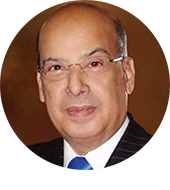
When is a failed policy recognised as a failure and abandoned for a new approach? That was the question that Barack Obama and his administration had to confront after more than 50 years of a policy of trade embargoes, sanctions and, at one point, invasion that failed to dislodge the Castro government in Cuba. It is a question that the present Donald Trump administration should be considering in relation to Venezuela and the Nicolas Maduro government.
Over the last four years, the U.S. government has imposed an array of sanctions against individuals and state enterprises in Venezuela. While the former may have hurt the individuals concerned, the latter has hurt the poorest and most vulnerable, exacerbating the flow of people from the country into neighbouring states. But, even the continuous sanctions have not created conditions in Venezuela where the people or the military have risen-up to bring about the regime change being sought by the U.S., Canada and a few countries in South and Central America.
Maduro’s government has remained in place by virtue of several circumstances, including strong support from a significant number of the population; the division among the opposition parties and the unattractiveness of their leaders, despite assertions to the contrary; and the financial backing of Russia and China which continue to buy Venezuelan oil.
The U.S. government, Canada and a few countries in Europe have recognised Juan Guaidó as the President of Venezuela and have supported his efforts to organise protests and demonstrations, although even these have diminished in recent months. Keeping large crowds on the streets arises either out of deep commitment to a cause or considerable financial support. Protests and marches don’t pay bills unless the protestors and marchers are compensated. Money – and donors – seem to have dwindled considerably.
This latter policy of support has encouraged Guaidó not to seek genuine national solutions in the several brokered attempts at dialogue that have occurred. No party to a negotiation, assured of external backing, would make concessions that would not put it in an advantageous position. Convinced that the U.S., Canada, a few European and Latin American governments would back his hard-line positions, Guaidó didn’t bargain, he postured.
This is not to say that the Maduro government did not also take unyielding positions. They clearly did; also encouraged by external forces, especially Russia and China, and by the fact that the majority of countries in the world still recognise it as the government of Venezuela. In the global support game, the score is Guaidó fifty or so; Maduro well over a hundred.
In all this, there have been no winners, only losers. And the biggest losers are the people of Venezuela whose quality of life, except for the higher echelons of the society, has dramatically deteriorated. Other losers are the neighbouring states into which Venezuelan refugees have poured. Each of them has been impacted by the inward migration. Costs of dealing with the influx of migrants has been high and has diverted funds that should be used to deliver the goods and services their own people expect. There will come a time when these same neighbouring countries will have to evaluate the damage to them of increasing and stringent sanctions on Venezuela that escalate migration. When their own circumstances compel them to do so, they will object to further sanctions and call for a reversal of many of them.
Recognising that sanctions have not produced the desired collapse of the Maduro government and that he has failed to mobilise enough internal dissent, particularly from the military, to topple the Government, Guaidó has been calling for U.S. military intervention.
A member of Guaidó’s group, Iván Simonovis, personally delivered a letter to President Donald Trump, requesting that the United States go “on the offensive”. In a tweet, Simonovis also declared, “now we are asking to accelerate the process and cut the oxygen line, to finally end Maduro’s time”. He has repeatedly stated that the solution for Venezuela is a “military coalition”. In part, this is why the U.S. and 9 countries from the Lima Group (including Guaidó’s representative), pushed through a resolution on September 11, 2019 at the Organisation of American States (OAS) to invoke the terms of the Rio Treaty, an anachronistic 1947 compact.
As I have written before, the objective of the resolution, set out in an accompanying notice, was to “adopt measures” to intervene in Venezuela which, it claimed “pose a threat to peace in the Americas”.
Guaidó was a guest at President Trump’s ‘State of the Union’ address on 4 February, and he was received by the President at the White House for a half-hour meeting. After the meeting, Guaidó reported that “concrete measures” against Maduro would be announced in the coming days.
Much as Guaidó might want it, President Trump’s “measures” are most unlikely to include a military intervention in Venezuela. This President has shown a marked reluctance to commit the lives of American soldiers and the resources of the U.S. Treasury to fighting someone else’s war, particularly as not only would it put the U.S. in an unnecessary confrontation with Russia and China, there would not be much benefit to come from it for America. As President Trump pointed out just the day before he received Guaidó, the U.S. is entirely self-sufficient in oil and gas, and whatever top-up it needs it can get quicker and cheaper from Canada.
There is clearly a stand-off now in the Venezuelan situation. It cries out for a fresh approach. President Trump might himself be the trump card in the resolution of this situation, if he decides to use his personal authority and bargaining skills for a direct discussion with Nicolas Maduro, centred on the welfare of the Venezuelan people.













